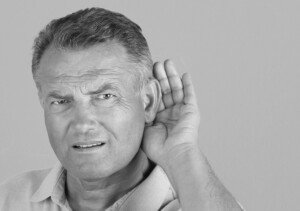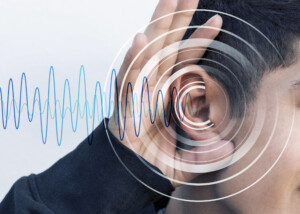An acoustic neuroma is a benign brain tumor that frequently leads to hearing loss before it’s diagnosed.
In some cases of acoustic neuroma — which is a benign brain tumor — the first symptom to appear is that of tinnitus – a subjective experience of hearing a hissing, buzzing or high-frequency steady tone in an ear.
An acoustic neuroma is an overgrowth of cells in the inner ear called Schwann cells. Sometimes this condition is referred to as a Schwannoma.
So it’s fair to wonder if all acoustic neuromas will cause hearing loss.
“The short answer is no,” says Hamid R. Djalilian, MD, Director of Neurotology and Skull Base Surgery, University of California, Irvine, School of Medicine.
Dr. Djalilian explains, “Most acoustic tumors will cause hearing loss, but we sometimes see large tumors that have no associated hearing loss. We also see small tumors that have no associated hearing loss as well.”
Absence of perceived hearing loss, then, does not rule out the presence of an acoustic neuroma in a person who’s having one or more of the following symptoms:
- Tinnitus
- Problems with balance
- Sensation of dizziness
- Facial numbness/tingling
- These are all well-documented symptoms of these slow growing masses.
The triad of tinnitus, balance issues and dizziness, however, is far more likely to be caused by other non-tumor conditions such as Meniere’s disease (a disorder of the inner ear).
Not all of these tumors are causing symptoms at the time of their discovery, as sometimes the mass is found on an MRI that’s taken for an unrelated reason.
The unrelated reason for these MRIs may be, for instance, a suspected concussion or hearing a “swooshing” sound in one’s ear with each heartbeat.
Acoustic neuromas do not cause that swooshing or whooshing sound, even though this symptom is a form of tinnitus.
The tinnitus that’s associated with an acoustic neuroma is more of the “ringing” type.
An acoustic neuroma, much less commonly, can cause changes in taste, a feeling of fullness in an ear, trouble swallowing, a hoarse voice, headaches (usually one-sided), confusion and unilateral epiphora.
Under two percent of people who experience a sudden hearing loss are diagnosed with an acoustic neuroma.
 Dr. Djalilian’s areas of expertise include complex ear surgery, hearing loss, tinnitus, balance disorders, facial nerve paralysis and skull base surgery. He conducts research in several areas related to cochlear implants and acoustic neuroma.
Dr. Djalilian’s areas of expertise include complex ear surgery, hearing loss, tinnitus, balance disorders, facial nerve paralysis and skull base surgery. He conducts research in several areas related to cochlear implants and acoustic neuroma.
 Lorra Garrick has been covering medical, fitness and cybersecurity topics for many years, having written thousands of articles for print magazines and websites, including as a ghostwriter. She’s also a former ACE-certified personal trainer.
Lorra Garrick has been covering medical, fitness and cybersecurity topics for many years, having written thousands of articles for print magazines and websites, including as a ghostwriter. She’s also a former ACE-certified personal trainer.
.






































